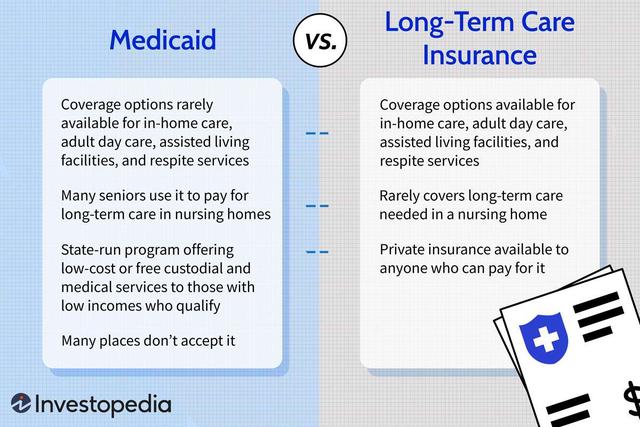Unsure about the insurance requirements for registering a car? Learn if you need insurance to register a car and the necessary steps to fulfill the requirements.
1. Introduction to the topic: Understanding the legal requirements for registering a car.
When it comes to registering a car, there are specific legal requirements that must be met in order to ensure compliance with the law. These requirements can vary depending on the state or country in which the car is being registered, but they generally include providing proof of ownership, obtaining the necessary insurance coverage, and paying any required fees or taxes. Understanding these legal requirements is essential for anyone looking to register a car, as failure to comply can result in fines, penalties, or even the inability to legally drive the vehicle.
Understanding proof of ownership
One of the key legal requirements for registering a car is providing proof of ownership. This typically involves presenting a certificate of title or other documentation that demonstrates the individual’s or entity’s legal right to possess and register the vehicle. In some cases, additional documentation may be required, such as a bill of sale or a release of lien if the car was previously financed. It’s important to understand the specific requirements for proving ownership in the jurisdiction where the car is being registered in order to ensure a smooth and legal registration process.
2. The importance of having insurance before registering a car.
Ensures financial protection
Having insurance before registering a car is crucial as it provides financial protection in case of accidents or damages. Without insurance, you could be held personally liable for any costs related to an accident, including medical expenses and property damage. By having insurance in place, you can protect yourself from potential financial ruin in the event of an unforeseen incident.
Legal requirement
In many countries, having car insurance is a legal requirement before you can register a vehicle. Driving without insurance not only puts you at risk of financial hardship in the event of an accident, but it also puts you at risk of facing legal consequences. By securing insurance before registering your car, you can ensure that you are in compliance with the law and avoid any potential legal issues.
Peace of mind
Having insurance before registering a car also provides peace of mind for the driver. Knowing that you are covered in the event of an accident or damage can alleviate stress and anxiety while on the road. It allows you to drive with confidence, knowing that you have the necessary protection in place. Additionally, insurance can provide coverage for other unforeseen events such as theft or vandalism, further adding to the peace of mind it offers.
3. Exploring state-specific insurance requirements for car registration.
When exploring state-specific insurance requirements for car registration, it is important to first understand that each state has its own set of regulations and minimum insurance coverage requirements. This means that the type and amount of insurance needed to register a car can vary greatly depending on where you live. Some states may require only liability insurance, while others may also mandate additional coverage such as uninsured motorist protection or personal injury protection. Therefore, it is crucial to research and understand the specific insurance requirements in your state to ensure that you are compliant when registering your vehicle.
Furthermore, it is advisable to consult with a licensed insurance agent or the department of motor vehicles in your state to obtain accurate and up-to-date information regarding the insurance requirements for car registration. These professionals can provide valuable insights and guidance on the specific types of insurance coverage needed to meet state regulations. Additionally, they can assist in comparing insurance quotes and finding the best policy that meets both the state requirements and your individual needs. By seeking expert advice and staying informed about state-specific insurance requirements, you can ensure that you are properly covered and compliant when registering your car.
Key considerations when exploring state-specific insurance requirements for car registration:
– Research the minimum insurance coverage required by your state
– Understand any additional coverage requirements, such as uninsured motorist or personal injury protection
– Consult with a licensed insurance agent or the department of motor vehicles for accurate information and guidance
– Compare insurance quotes to find the best policy that meets state requirements and your individual needs
4. What are the consequences of not having insurance when registering a car?
Legal Consequences
One of the main consequences of not having insurance when registering a car is facing legal penalties. In many states, it is a legal requirement to have car insurance in order to register a vehicle. Failure to provide proof of insurance can result in fines, suspension of the vehicle registration, or even the impoundment of the vehicle. Additionally, driving without insurance can lead to legal trouble if you are involved in an accident, as you will be personally responsible for any damages or injuries.
Financial Consequences
Not having insurance when registering a car can also lead to significant financial consequences. If you are involved in an accident without insurance, you will be responsible for covering the cost of any damages or injuries out of your own pocket. This can result in a substantial financial burden, potentially leading to bankruptcy or other serious financial hardship. Additionally, if your vehicle is impounded due to lack of insurance, you will be responsible for the towing and impound fees, which can be quite expensive. Overall, the financial repercussions of driving without insurance can be severe and long-lasting.
It is important to note that the consequences of not having insurance when registering a car can vary by state, so it is crucial to familiarize yourself with the specific requirements and penalties in your area. Additionally, it is always best to prioritize the safety and financial security of yourself and others by obtaining the necessary insurance coverage for your vehicle.
5. How to find the right insurance coverage for car registration.
When it comes to finding the right insurance coverage for car registration, it’s important to consider your specific needs and budget. Start by researching different insurance companies and comparing their coverage options, rates, and customer reviews. Look for a company with a good reputation and reliable customer service to ensure you receive the support you need in case of an accident or other issue. Additionally, consider factors such as your driving record, the type of car you drive, and the amount of coverage required by your state.
Factors to consider when choosing insurance coverage:
– Your budget and financial situation
– The type of car you drive
– Your driving record and history of accidents
– The amount of coverage required by your state
– Additional coverage options such as roadside assistance or rental car reimbursement
Once you’ve identified your needs and priorities, reach out to insurance agents or use online comparison tools to get quotes from multiple companies. Be sure to ask about any discounts or special offers that may be available to you, and carefully review the terms and conditions of each policy before making a decision. By taking the time to research and compare different insurance options, you can find the right coverage for your car registration that provides peace of mind and financial protection.
6. Understanding the minimum coverage requirements for car registration.

What are the minimum coverage requirements?
In order to register your car, you must meet the minimum coverage requirements set by your state’s Department of Motor Vehicles (DMV). These requirements typically include liability insurance, which covers the costs of damage or injuries you may cause to others in an accident. The minimum coverage limits vary by state, so it’s important to check with your local DMV to ensure you have the appropriate coverage.
Why is it important to understand these requirements?
Understanding the minimum coverage requirements for car registration is crucial for ensuring that you are legally compliant and adequately protected in the event of an accident. Failing to meet these requirements can result in fines, license suspension, or even legal action. Additionally, having the right coverage can provide you with peace of mind knowing that you are financially protected in the event of a car accident.
It’s important to note that while meeting the minimum coverage requirements is necessary for car registration, it may not provide you with sufficient protection in all situations. It’s a good idea to consider additional coverage options, such as collision or comprehensive insurance, to ensure that you are fully protected on the road.
7. Exploring options for obtaining insurance for car registration.
When it comes to obtaining insurance for car registration, there are several options to consider. One of the most common options is to go through traditional insurance companies, which offer various coverage options and packages. These companies often have established reputations and can provide a sense of security and reliability. Another option is to explore specialized insurance providers that cater specifically to car registration and can offer tailored coverage and pricing. It’s important to thoroughly research and compare different options to find the best fit for your specific needs and budget.
Factors to consider when exploring insurance options:
– Coverage: Consider the type and extent of coverage offered by different insurance providers, including liability, collision, and comprehensive coverage.
– Cost: Compare quotes from different providers to find the most competitive pricing for the coverage you need.
– Customer service: Look for reviews and ratings of insurance providers to assess their customer service and claims handling.
– Specialized offerings: Explore insurance providers that offer specific benefits for car registration, such as roadside assistance or coverage for custom modifications.
8. Tips for saving money on insurance for car registration.
1. Compare quotes from different insurance companies
One of the best ways to save money on car insurance for registration is to shop around and compare quotes from different insurance companies. Each company has its own pricing and coverage options, so it’s important to do your research and find the best deal for your specific needs.
2. Consider raising your deductible
Another way to lower your insurance costs for car registration is to consider raising your deductible. A higher deductible means you’ll have to pay more out of pocket if you have a claim, but it can also significantly lower your monthly premiums.
3. Take advantage of discounts
Many insurance companies offer discounts for things like safe driving, bundling policies, and having certain safety features on your car. Be sure to ask about any available discounts when shopping for car insurance for registration, as they can help you save a significant amount of money.
9. Exploring the process for providing proof of insurance when registering a car.
When registering a car, providing proof of insurance is a crucial step in the process. Most states require that drivers have a minimum amount of liability insurance in order to register a vehicle. The process for providing proof of insurance typically involves submitting a copy of the insurance policy or a proof of insurance card to the department of motor vehicles (DMV) or other relevant agency. This documentation serves as evidence that the vehicle is covered by an insurance policy that meets the state’s requirements.
Types of acceptable proof of insurance
There are several types of documents that may be accepted as proof of insurance when registering a car. These may include an insurance ID card, a copy of the insurance policy declaration page, or a letter from the insurance company confirming coverage. It’s important to check with the specific requirements of the state or agency where the vehicle is being registered to ensure that the correct type of documentation is provided.
Submitting proof of insurance
The process for submitting proof of insurance may vary depending on the state and the specific requirements of the DMV or other agency. In some cases, it may be possible to submit proof of insurance online, while in other cases it may need to be submitted in person or by mail. It’s important to follow the instructions provided by the state or agency to ensure that the proof of insurance is submitted correctly and that the vehicle registration process can be completed smoothly.
10. Conclusion: Understanding the necessity of having insurance in order to register a car.
The importance of insurance for vehicle registration
It is important to understand the necessity of having insurance in order to register a car. Insurance provides financial protection in case of accidents, theft, or damage to your vehicle. Without insurance, you would be personally liable for any damages or injuries that occur as a result of your driving. This not only puts you at risk, but also endangers others on the road. Therefore, having insurance is not only a legal requirement for registering a car, but also a moral responsibility to ensure the safety and well-being of yourself and others.
Legal and financial implications
In many countries and states, it is a legal requirement to have insurance in order to register a car. Driving without insurance can result in hefty fines, license suspension, or even legal action. Additionally, if you are involved in an accident without insurance, you could be held personally responsible for the costs of damages and medical expenses. This could have serious financial implications and could potentially lead to bankruptcy. Therefore, understanding the legal and financial consequences of driving without insurance is crucial in realizing the necessity of having insurance for vehicle registration.
Peace of mind and protection
Having insurance not only fulfills a legal requirement, but also provides peace of mind and protection. Knowing that you are financially covered in case of unexpected events can alleviate stress and worry. Whether it’s minor damage to your vehicle or a major accident, insurance ensures that you are not left to bear the burden of the costs alone. This sense of security and protection is invaluable and underscores the importance of having insurance in order to register a car.
In conclusion, having insurance is a requirement to register a car in most states. It is essential to have the appropriate coverage to protect yourself and others on the road. Make sure to check the specific insurance requirements in your state before getting behind the wheel.

